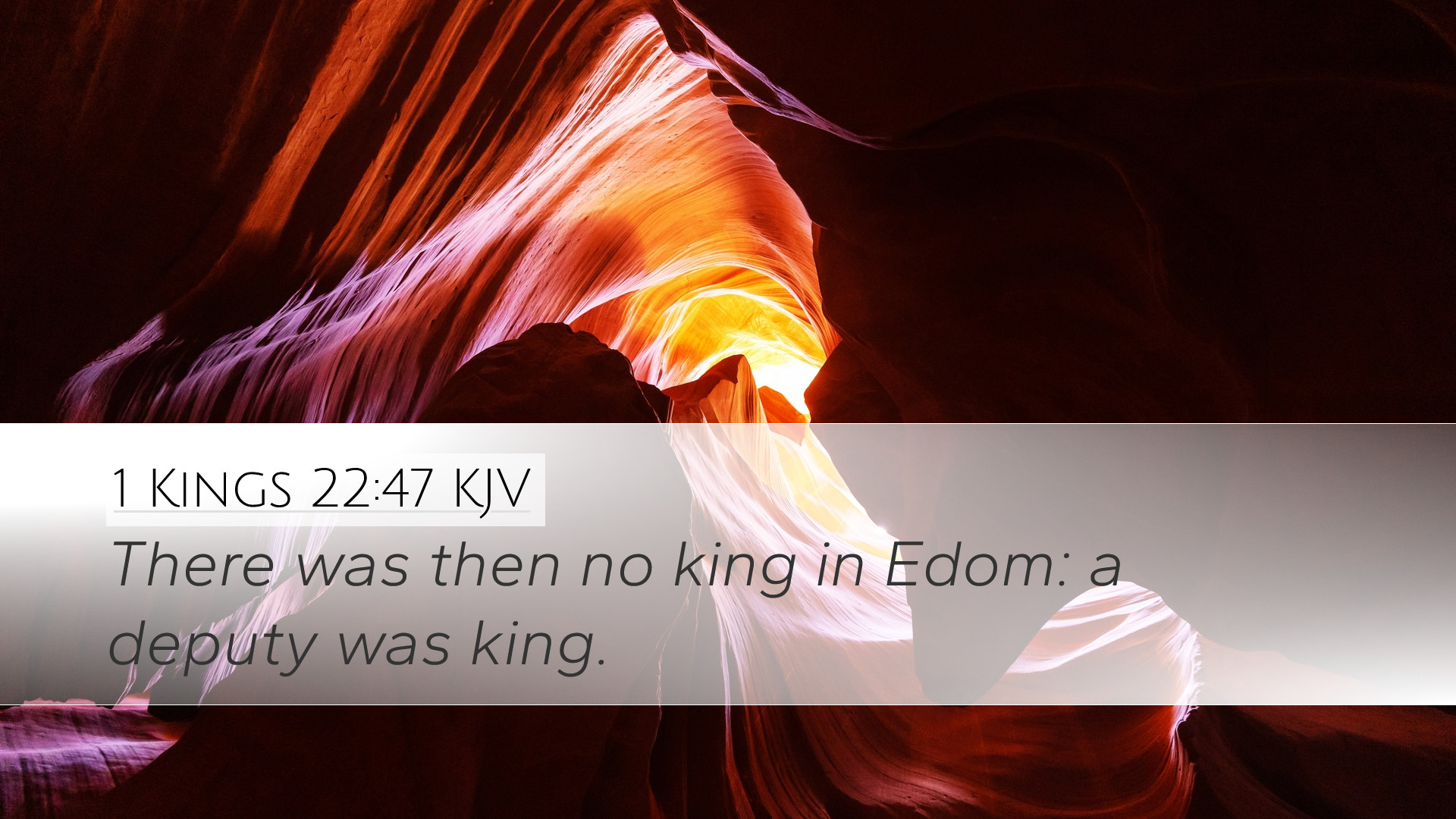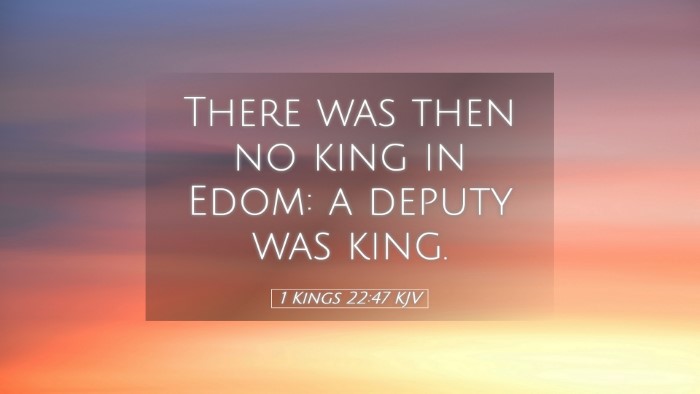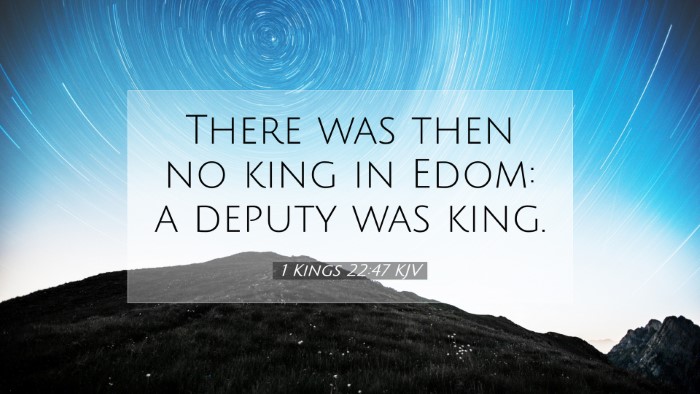Commentary on 1 Kings 22:47
1 Kings 22:47 states: "But there was no king in Edom: a deputy was king." This verse concludes the narrative of King Jehoshaphat’s reign and presents a significant moment regarding the political state of Edom and its relation to Israel. It serves as a reminder of the transitions of power and the theological implications of kingship in biblical history.
Historical Context
The relationship between Israel and Edom has a lengthy history, which includes animosity and attempts at alliance. Jehoshaphat’s earlier reign shows a willingness to engage with Edom (e.g., 1 Kings 22:48), but the absence of a king in Edom by the time of this verse suggests a period of instability or transformation.
Edom had previously been a vassal state under David and Solomon, and the note of a deputy king implies subordinate governance. Throughout the historical narrative, devout kings in Israel often reflected negatively on their Edomite counterparts, emphasizing the tension in these relationships.
Insight from Public Domain Commentaries
Matthew Henry's Commentary
Henry notes the absence of a king in Edom as a significant comment on the political landscape of the time. He observes that the establishment of a deputy is indicative of a lack of independence and an acknowledgment of Israel's military prowess and influence.
-
Subordination of Edom: The fact that Edom was governed by a deputy illustrates its submission to Israel. This reflects the larger theme of divine sovereignty and judgment as Israel’s political maneuvers often correlated with their spiritual fidelity to God.
-
The Role of Leadership: Henry points out that a deputy may serve as a reminder of the importance of righteous leadership. A true king, one who reigns in justice and wisdom, is essential for stability—not only in Edom but also in Israel.
Albert Barnes' Commentary
Barnes emphasizes the implications of this verse on the larger narrative of Israel's kingship. He highlights that the absence of a king represents a political vacuum which could lead to chaos and instability in the region.
-
Political Vacuum: The deputy king status implies a shift towards instability, raising questions regarding who would fill the power void and the potential for increased tension between nations.
-
Theological Implications: Barnes articulates that this verse reflects God’s judgment and serves as an illustration of the outcomes of spiritual decay within a civilization. The lack of authority can point to the depravity or moral declination of the political structure.
Adam Clarke's Commentary
Clarke notes the significance of Edom’s political status in the context of its history of rebellion against Israel. He connects the current status of Edom with past episodes of conflict, particularly during David's reign.
-
Historical Rebellion: Clarke reflects on how Edom’s failure to maintain a stable monarchy could be viewed as an outcome of its historical rebellion against Israel, suggesting a divine principle where nations that oppose God’s chosen are eventually brought low.
-
Symbolic Meaning: The reference to a deputy instead of a king carries both political and spiritual significance. It symbolizes a reduced and subordinate status, aligning with the biblical theme that ultimate authority belongs to God, who alone raises up kingdoms and puts them down.
Theological Reflections
Together, these insights illuminate several key theological reflections:
-
Kingship and Authority: The kingship of Israel and its neighboring nations symbolizes a broader narrative of God’s involvement in human governance. The establishment or absence of rulers can reflect God’s active hand in the affairs of nations.
-
Righteous Leadership: Effective leadership arises from a godly foundation. As pastors and leaders, there is a profound challenge to pursue righteousness in their own leadership contexts to foster stability in the communities they serve.
-
Historical Consequences: The text serves as a reminder that historical actions have consequences that reverberate through time. The faithfulness or rebellion of a nation can have significant implications for its future governance and stability.
Application for Today
For modern readers—especially pastors, theologians, and students—this verse can prompt reflection on the nature of authority and the importance of righteous leadership. Just as the absence of a king in Edom served as commentary on their spiritual and political state, contemporary leaders are urged to prioritize integrity, faithfulness, and service in pursuit of a just society.
In conclusion, 1 Kings 22:47 serves as a profound reminder of the impact of leadership on a nation’s destiny, the overarching sovereignty of God in governance, and the importance of integrity in positions of authority. Each generation must, therefore, take serious heed of the lessons of history as they influence the present and future.


